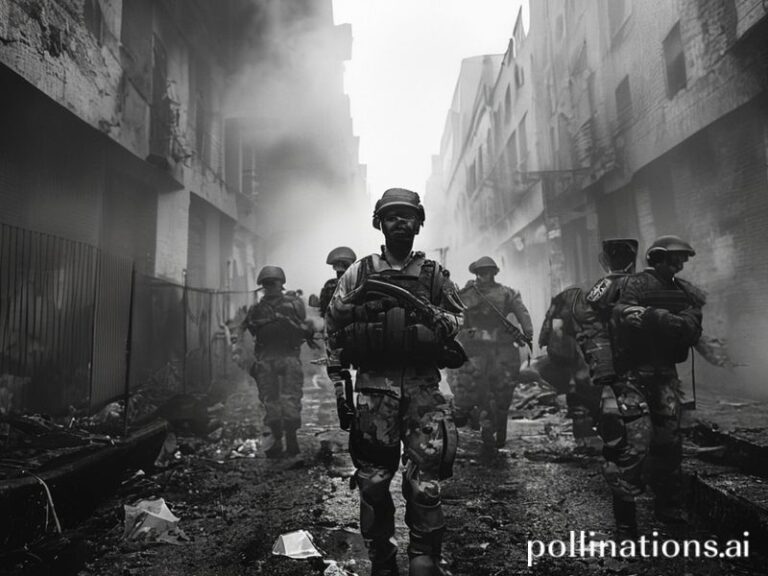Global Eyes on the House: How Big Brother Tonight Became the World’s Shared Insomnia
**Big Brother Tonight: A Global Fever Dream in Real Time**
*By Our Man in the Panopticon*
GENEVA—While you were arguing over whose turn it is to refill the ice tray, 1.2 billion people from Lagos to Lima were glued to pixelated livestreams, collectively watching strangers argue over whose turn it is to refill the Brita. “Big Brother Tonight”—the branded recap show that stitches together the day’s surveillance-house highlights—has become the planet’s most reliable nightly sedative, proving once again that Orwell underestimated our willingness to volunteer for the telescreen.
In Brazil, bars pause the samba when the theme music hits. In Germany, viewing parties are scheduled with the precision of a train timetable that will absolutely run on time, thank you. Even in Pyongyang, where the show is officially “decadent capitalist sewage,” defectors report bootleg DVDs circulating in plastic sleeves once reserved for South Korean soap operas. Nothing unites a fractured world quite like watching other people eat expired lentils under fluorescent lighting.
The international editions have become soft-power proxies. Brazil’s “BBB” supplies the tropical libido; Canada’s offers polite backstabbing; Serbia’s version, set in a repurposed bunker, feels like a sociological experiment cosplaying as entertainment. Viewers in Nairobi root for the Nigerian contestant the way they once rallied behind marathon runners—only now the finish line is a branded energy-drink sponsorship instead of a medal. National pride, 2024-style: my housemate can out-whine your housemate, so take that, former colonial power.
Ratings data reveal darker rhythms. Whenever a drone strike makes headlines in the Middle East, MENA-region streams spike 18 percent within the hour. Sociologists call it “empathy fatigue”; TV executives call it “appointment viewing.” The same night Russia parked missiles near Kharkiv, “Big Brother Ukraine” trended worldwide—proof that if you can’t secure your actual borders, you can at least vote to evict someone from a fake ones. The algorithm is impartial; it monetizes every tremor of geopolitical anxiety and sells it back to you with a side of microwave popcorn.
Meanwhile, advertisers have perfected the art of the hostage video. Contestants weeping over a lost love? Smash-cut to a dating app. Existential meltdown at 3 a.m.? Here’s a meditation subscription voiced by the same actor who narrates the show. The global ad spend now exceeds the GDP of Malawi, a country whose entire population could be bought and sold twice before the next immunity challenge. But sure, tell yourself you’re only watching ironically.
Scholars warn the format is training citizens for perpetual surveillance. Citizens respond by live-tweeting their grocery runs, just in case a casting agent is scrolling. The circle tightens: we practice being watched, watch others practicing, then buy smarter doorbells so we can watch ourselves watching. Somewhere in Brussels, a GDPR bureaucrat wakes screaming, but the dream is sponsored, so he hits snooze.
Tonight’s eviction vote will be tallied faster than most national elections and with roughly the same margin of error. The winner receives a check that could fund a rural clinic for a year, but will instead be spent on teeth so white they’ll blind the paparazzi of Mykonos. The loser walks out to polite applause, a Spotify deal, and the sudden realization that anonymity is now a pre-existing condition.
So gather your international friends, crack open a locally brewed beverage, and savor the spectacle: seven billion people orbiting a warming rock, choosing to spend their finite heartbeats deciding whether a stranger from Dundee should win a toaster. The panopticon was supposed to be terrifying. Turns out it’s just tacky, and we can’t look away. Sleep tight; the cameras will keep the night-light on for you.







